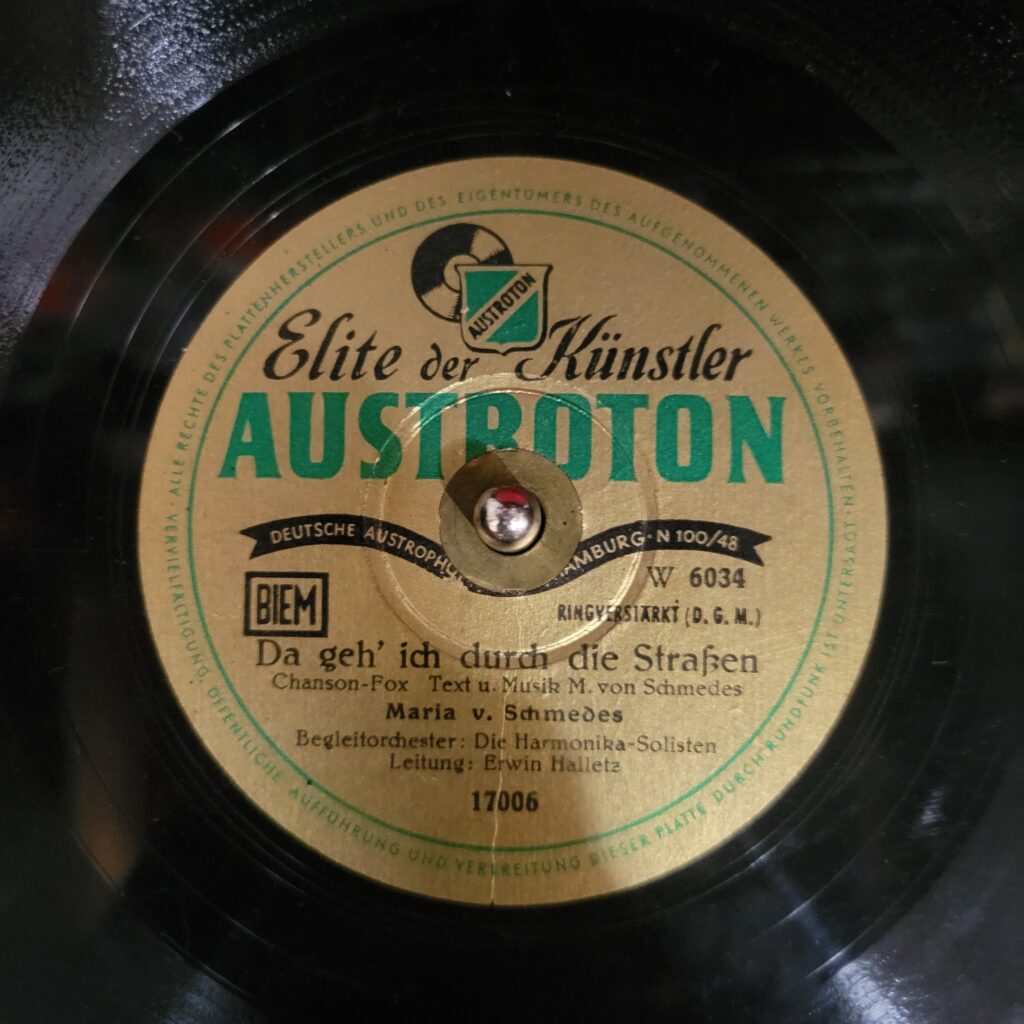Table of Contents
In the annals of music history, Elite der Künstler Austroton, also known as Deutsche Austrophone, holds a unique position. Operating in the mid-20th century, the label became a beacon for German-speaking musicians and music lovers alike, forging a rich and compelling legacy that continues to resonate today.
Deutsche Austroton was a record label founded in 1948 by Gerhard Mendelson in Vienna, Austria. The label was originally a subsidiary of the Swiss Turicaphon AG, but it became independent in 1954. Deutsche Austroton specialized in recordings of classical music, opera, and jazz. The label also released a number of popular music recordings, including by artists such as Peter Alexander and Peter Kraus. Deutsche Austroton ceased operations in 1969.

A Name with a Story
The label’s name—Elite der Künstler Austroton, or the “Elite of Artists from Austroton”—paints a vivid picture. It suggests an intent to provide a platform for the best German-speaking artists of the day, a lofty ambition it strove to fulfill throughout its active years.
The alternate name, Deutsche Austrophone, can be interpreted as “German Austro-sound,” again underscoring the label’s commitment to championing German-speaking musicians. Both names offer a profound glimpse into the label’s vision and ethos, representing a unique fusion of culture, language, and sound.
Foundations and Intentions
The Austroton label was founded in a period of remarkable creativity and innovation in the music industry. The mid-20th century marked the emergence of numerous music labels, each with its unique flavor and style. In this burgeoning landscape, Austroton’s specific focus on German-speaking artists set it apart.
The primary intention was to offer a platform for these artists, to bring their music to the public, and in doing so, to enrich the musical landscape of the time. By providing this platform, Austroton not only nurtured talent but also curated a body of work that reflected the linguistic and cultural diversity of the German-speaking world.
Iconic Releases
Austroton was renowned for its array of eclectic releases. From traditional folk to emerging popular music genres, the label was a purveyor of a wide spectrum of sounds. Its expansive catalogue appealed to a broad audience, allowing listeners to experience the rich tapestry of German-speaking music.
Some of the most memorable releases from Austroton include works from artists who went on to achieve substantial recognition. The precise blend of artists and styles varied over time, with the label adeptly responding to, and indeed shaping, changing musical tastes.
Influence and Legacy
Despite its eventual dissolution, the impact of Austroton is still palpable today. The label was a trailblazer in many respects, showcasing a variety of musical styles within the German-speaking sphere that might otherwise have struggled for recognition.
It wasn’t just about the music; it was also about identity and cultural representation. Austroton promoted a sense of belonging and community among German-speaking artists and listeners, fostering an understanding of a shared cultural heritage. This aspect of the label’s work is perhaps its most enduring legacy.
Music historians and enthusiasts today regard Austroton as a crucial element in the broader narrative of 20th-century music. Its distinct focus, coupled with its commitment to quality and diversity, makes it a label of significant historical interest. Moreover, its rich catalogue of releases continues to provide a treasure trove of auditory experiences for those with a passion for vintage recordings.
The Vintage Appeal
Today, Austroton’s records hold considerable appeal for vintage music collectors. Like many labels of its time, Austroton pressed their releases on vinyl, a format experiencing a major resurgence among music enthusiasts for its warm, rich sound quality.
As a result, Austroton’s records have become sought-after items for collectors, with their distinctive artwork and the historical significance adding to their value. Whether it’s the thrill of tracking down a rare release, the tactile pleasure of handling a vinyl record, or the joy of discovering an overlooked gem, the world of Austroton offers a wealth of experiences for the contemporary collector.
In Conclusion
As we reflect on the journey of Elite der Künstler Austroton, or Deutsche Austrophone, we gain a deeper understanding of its unique place in music history. The label played a pivotal role in promoting German-speaking artists, contributing to the richness and diversity of the mid-20th-century music scene. Although its physical presence may have faded, its influence continues to echo through time, a testament to the enduring power of music.
